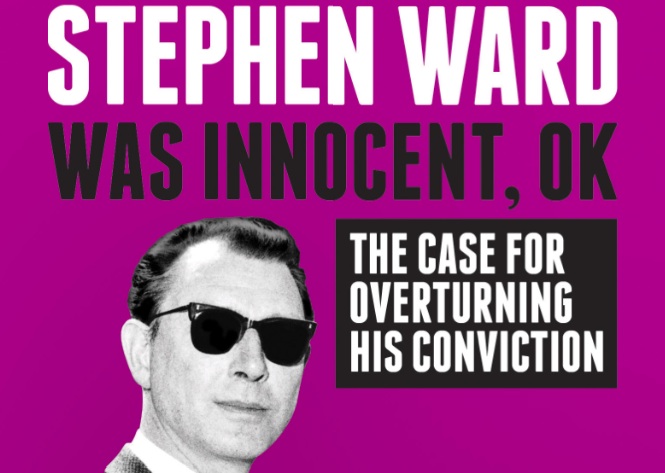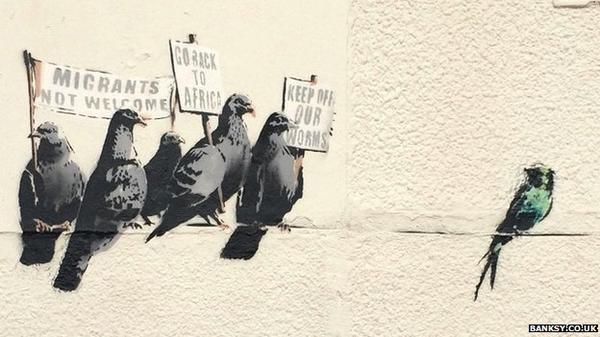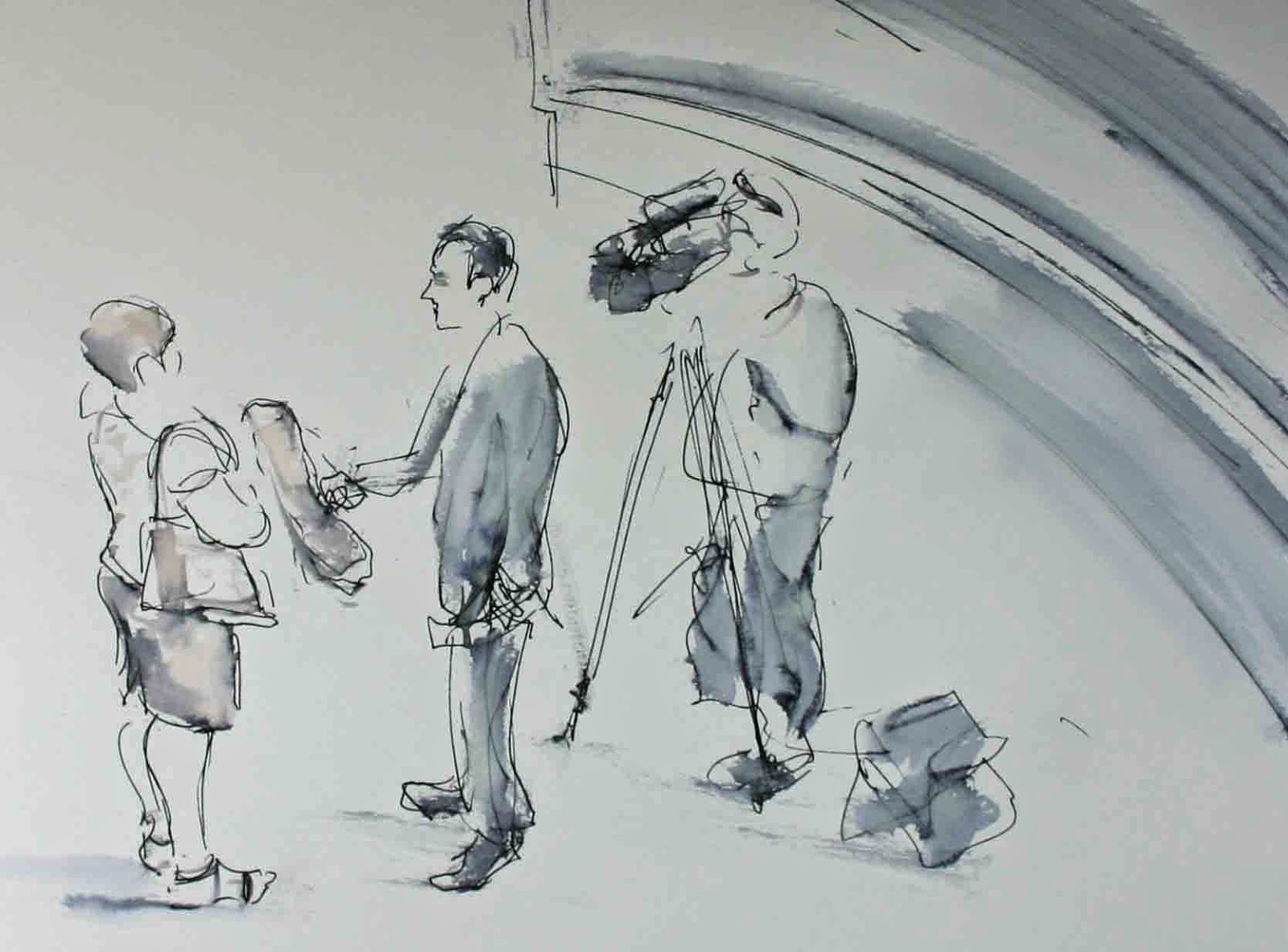[contextly_auto_sidebar id=”eZmxjf9xLnVAK2FFMq2HRbVhPmkxIyFf”]
Happy new year
Thanks to everyone who has written for – or supported – www.thejusticegap.com over the last 12 months. Too numerous to mention by name (but listed on our contributors’ page).
Special thanks to Brian Thornton and Mary-Rachel McCabe for commissioning, editing and their help running the site over the last 12 months.
I’m also grateful for the Winchester Journalism students who double as JusticeGap reporters as part of their course – Bracken Stockley, Tom Wright, Brooke Perriam, Hattie Waldron and Jason French.
Please see below for some highlights – articles, quotes and pix – from last year.
See you in 2015.
Best wishes,
Jon Robins (editor, www.thejusticegap.com)
2014: 20 most read articles*
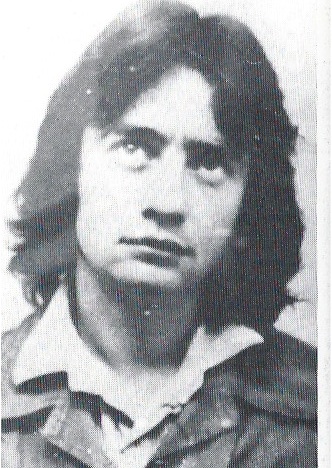
Gerry Conlon’s interview with Mary-Rachel McCabe was the most read article this year. Sadly, Gerry died in June this year.
- A last, powerful interview with Gerry Conlon: ‘There are days I wish I was still in prison’ by Mary-Rachel McCabe
- Hillsborough: telling the truth about the scum by Chris Horrie
- Cheshire West case: ‘A gilded cage is still a cage’ by Matt Evans
- Joint enterprise: confusing juries and courts by Jon Robins
- Victor Nealon: MoJ pursues legal costs from man who spent 17 lost years in prison by Jon Robins
- Dwaine George appeal: law students making history by Julie Price
- Rolf Harris, jurors and heavy prejudice by Felicity Gerry QC
- Oscar Pistorius trial: a test case for South African justice by Jon Robins
- Ched Evans referral: why the big rush? by Kim Evans
- Oscar Pistorius verdict: was it a miscarriage of justice? by Jon Robins
- Max Clifford sentence: ‘manifestly excessive’ or ‘unduly lenient’? by Dan Bunting
- The end of the road for civil recovery? by Richard Dunstan
- Freddie Starr case: how can it right to be on bail for 19 months? by Greg Foxsmith
- Ashya King: Is it a crime to take your child out of hospital without consent? by Peter English
- ‘Which of these rights would you wish to discard?’ by Oliver Carter
- Tony Stock: one of the most outrageous miscarriages of justice of modern times by Jon Robins
- Compensation for the wrongly accused by Mark Newby
- Clydach murders: Five years working on a ‘hopeless case’ by Brian Thornton
- UK Innocence Projects: a bright future by Andrew Green
- Researching celebrity historic sexual abuse allegations by Mark Smith, Steve Kirkwood, Clare Llewellyn of the University of Edinburgh and Ros Burnett of the University of Oxford
*according to Google Analytics
January
Should Nigella be busted for coke?
‘The trial of Elisabetta and Francesca Grillo was always going to be a great media circus. It had celebrity, sleaze and, of course, Nigella.’ Despite not being on trial, the celeb chef took centre stage as her private life was raked over.
Nigella denied much of what was suggested, but did accept taking cocaine on several occasions. Would the police come round and feel her collar? Dan Bunting asked.
‘Radical barrister’? A contradiction in terms, surely
‘I think a ‘radical barrister’ is a contradiction in terms,’ Geoffrey Robertson QC told www.thejusticegap.com editor Jon Robins. The human rights lawyer was talking about his new book on the Stephen Ward case. ‘The conviction of Stephen Ward stands as the worst unrequited miscarriage of justice in modern British history
‘You cannot say that people who bow and scrape for a living and earn as much as the Bar has done in the past can be particularly radical. We might be radical in our private views but this in our legal work we are bound by strict and in the most part valuable conventions.’
Geoffrey Robertson QC
Degrees of innocence
‘To ask people to prove their innocence beyond reasonable doubt is an affront to our system of law,’ said Baroness Helena Kennedy in the House of Lords. Her fellow peers were debating the Antisocial Behaviour, Crime and Policing Bill, clause 161 which featured a new test for compensation for the victims of miscarriage of justice – they would have to prove their innocence beyond reasonable doubt.
‘It is very difficult for people to prove that they are innocent beyond reasonable doubt: “Prove that you didn’t kill your baby”; “Prove that you didn’t leave a bomb in the pub”,’ Kennedy said. The proposal became law later in the year.
February
Cops with cameras
Some 90% of www.thejusticegap.com readers replied “yes” to the question posed in a JusticeGap poll: should the police have to wear body cameras?
‘Agents of the state fitted with mobile CCTV has a slightly Orwellian feel to it,’ wrote Simon Chesterman, Deputy Chief Constable of West Mercia Police. ‘How long will it be before these commentators are expressing concerns about the police habitually filming encounters with citizens?’
Memphis 3
‘I’m not talking about turtles you’ve ever seen. They were like prehistoric beasts,’ the American film director Amy Berg told Tom Wright. These giant snapping turtles played a critical role in unveiling the truth in a shocking American miscarriage of justice scandal which became the subject of Berg’s documentary film called West of Memphis.
Berg was speaking ahead ahead of a screening of the film at the London Investigative Film Festival. The bodies of three young boys were found in 1993 covered in shallow scratches. The court heard that three teenagers (known as ‘the Memphis Three’) had stabbed the victims and disposed of the bodies, later found in an area known to be inhabited by snapping turtles. ‘We did an experiment with snapping turtles and a pig – and the scratch marks on the pig’s torso were exactly the same as on the boys,’ Berg said. ‘If someone had stabbed them there would have been some depth to the wounds – but there were just scratch marks.’
‘I don’t think they’ll ever be justice in this case. I did believe there would be when we released the film, I thought it would be so obvious But now I don’t believe that.’
Amy Berg on the Memphis 3
The return of Rough Justice
David Jessel reflected on the return of Rough Justice and rumours that Channel Five was considering reviving the series. Sadly, the rumours came to nought.
‘So does that mean that we’re in for a series of Celebrity Jailbird, presented by Jeffrey Archer, with interactive voting and a rather inappropriate use of trapdoors? Will Channel 5 do what they did when they took over Big Brother, Channel 4’s grave, sociological study of behaviour in confinement, and turned it into a Daily Star bonkfest?’
David Jessel
March
‘The police have had it their own way for too long’
There was no sign of Paddy Hill mellowing over the years when he spoke to Mary-Rachel McCabe. ‘We want to show the people of this country just how rotten, evil, corrupt and perverted the judicial system is in this country,’ Hill told McCabe here. ‘We’re now seeing what happened with Stephen Lawrence, but this is nothing new. The police in this country have had it their own way for too long.’
Hill had made an unlikely alliance with the families of the victims of the 1974 Birmingham pub bombings calling on the government to set up a public inquiry into the atrocity.
‘We had been their figures of hate for 16 and a half years. And then suddenly they find out – “hang on, these guys didn’t do it”. So I think they were a bit more apprehensive at meeting me. But it went very well with them.’
Paddy Hill
The failed rehab revolution
‘A prison system cannot be run like a Soviet Kholkozy of the 1950s, pretending that the grain harvest is on target and that the tractors never break down.’ John Podmore on the politicians and the failed rehabilitation revolution.
Football, human rights & why we’ll never win the World Cup again
Jamie Potter on the (apparently) inextricable links between the history of human rights and the development of the beautiful game.
‘1966. A crucial year and one that should be indelibly inscribed in the minds of all British citizens as the first year in which individuals were entitled to take claims to Strasbourg. And, of course, England won the World Cup.’
Jamie Potter
April
Shocking Britain
Watch Matt Spencer’s film for www.thejusticegap.com on the controversial rollout of the Taser.
‘Unfortunately because Taser is an electroshock weapon – it leaves few physical marks – and because it inflicts severe pain at the flick of a switch, it can be misused as a tool for pain compliance and it is utterly wrong.’
Olly Sprague, Amnesty
The first justice secretary from Tooting?
Labour’s justice minister Sadiq Khan spoke to Mary-Rachel McCabe here. Chris Grayling had accused him of having a ‘manifesto for London’ with justice coming as ‘an afterthought’. ‘The job I really want is Chris Grayling’s, not Boris Johnson’s,’ Khan said, ‘I want to be the first justice secretary from Tooting.’
Grayling’s book ban
‘In 25 years in prisons my biggest drugs find was strapped to the legs of a prison officer. I was tempted to ban all prison officers from coming into prison but thought it best to concentrate on the one.’
John Podmore here on the reasons behind Chris Grayling’s book ban for prisoners
Meanwhile we sent Clive Stafford Smith’s book Injustice: life and death in the courtrooms of America to HMP Wandsworth’s book club to review (here).
Joint enterprise stats
Maeve McClenaghan, Melanie McFadyean and Rachel Stevenson of the Bureau of Investigative Journalism gave us the stats on joint enterprise.
- Since 2005 there have been 1,853 people prosecuted in homicide trials that almost certainly used joint enterprise – 18% of all homicide prosecutions during this period;
- The peak was in 2008, with 20% of all homicides;
- In the same period, 4,590 people were prosecuted for homicides involving two or more defendants – the category used by the CPS to show numbers of people prosecuted under joint enterprise; and
- In 2013 some 22% of published Court of Appeal rulings dealt with convictions where there had been some element of joint enterprise, or 43 out of 194 published rulings.
May
So, how did you end up writing for the Guardian?
‘In prison I used to get put in segregation for saying my piece and yet here I am giving my comments and my thoughts – and getting paid.’ Eric Allison, the Guardian’s prison correspondent, spoke to Christina Michaels about 16 years behind bars.
‘I’ve been locked up with murderers, terrorists, rapists and psychopaths. You name it, even gangsters. I’ve seen a lot of examples of prisoners behaving badly towards one another, but if I was to list the worst 20 acts I’ve ever seen in prison, not one of them would be carried out by a prisoner.’
Eric Allison
Michaels asked Eric Allison how he ended up prison correspondent for a national newspaper.
‘The Guardian advertised for the position and I applied for the job. They wanted a 500 word essay and a CV. My CV was all prison and crime. I never thought for one second that I would get the job. I didn’t even want it. I just thought I would tell them what was wrong with the prison system. I couldn’t type. I didn’t know one end of the computer from the other.’
Eric Allison
The old myths
‘I do not want to see new myths replace the old,’ wrote the DPP Alison Saunders for www.thejusticegap.com (here).
‘Not being certain of a conviction is not a reason to avoid bringing a case to court and I don’t think the public would want, or benefit from, such a risk-averse public prosecutor. We are aware of the difficulties with successfully prosecuting sexual offences. Neither prosecutors nor juries will always have conclusive forensic or third party evidence to rely on.’
Alison Saunders
Diary of a whistleblower
‘I can make my peace with what I have done one minute and then the next I am pissed off. I could have kept my piece just like everybody else. I don’t have any regrets though.’ James Patrick, the police whistleblower who exposed the manipulation of crime figures, spoke to Jon Robins. Patrick became a policeman on on May 10, 2004 at the age of 24 years. He resigned from the force on May 9 2014 at midnight, exactly 10 years later. ‘It has been a decade of my life – and it hasn’t been pleasant,’ he said.
‘The system is entirely driven by personal progress and that causes me a great deal of discomfort – not least because it is potentially fraud. Targets have no place in policing. It is not what we are there for.’
James Patrick
June
Farewell Gerry Conlon
Gerry Conlon, who was wrongly convicted of the 1974 Guildford IRA pub bombing, died on June 21. You can read (possibly) the last interview with Mary-Rachel McCabe here. It was the most viewed article of the last 12 months (11, 527 views)
‘There are days I wish I was still in prison. There are days I wish I was dead. The only thing that keeps me going is that I believe it is now my calling to stop what happened to me happening to other people. No family should have to suffer what my family suffered.’
Gerry Conlon
A turkey called SARAH
‘When it comes to delivering public policy turkeys, there are few ministers as consistently masterful as Chris Grayling,’ wrote Richard Dunstan about a ‘particular turkey’ called SARAH who, according to the Lord Chancellor, is going to ‘slay much of the ‘elf and safety’ and jobsworth culture.
‘Her full name is the Social Action, Responsibility and Heroism Bill, she’s the gallinaceous love child of Grayling and Cabinet Office minister Oliver Letwin… You simply can’t legislate against irrational fear.’
Richard Dunstan
If Andrew Mitchell can see the light…
Reflecting on Andrew Mitchell claiming that he had been falsely accused by the police in the Plebgate affair, David Jessel wrote:
‘We can only hope, for his own good, that Chris Grayling gets accused of a crime of which he is innocent. Then he might know what it is like to be defended by a solicitor who is paid a maximum of £250 to read the case papers to decide if an appeal is worthwhile. Legal aid cuts are just one part of the perfect storm which is building toward hurricane force and which directly threaten the falsely accused.’
David Jessel
July
Lazy journalism and the need for drama
‘A lie is halfway round the world before truth has its boots on,’ the playwright Jimmy McGovern reminded Tom Wright. According to McGovern, ‘bad journalism’ created the need for a drama documentary like Hillsborough or Common, his film about joint enterprise.
‘You write the drama documentary putting the other side of the story and, of course, the people sitting in judgment of the documentary are those very same lazy journalists who established the need for it in the first place. There will always be a need for drama documentaries as long as lazy journalism exists – there’s far too much of it.’ Jimmy McGovern
‘Chris Grayling can’t help it. He’s a PR man…
Clare Sambrook’s profile of our Lord Chancellor (which first appeared on openDemocracy’s Our Kingdom site) provided an insight. Chris Grayling was an experienced PR man, she wrote.
After Cambridge University and a stint at the BBC, Grayling joined Burson-Marsteller, ‘the international masters of reputation management’ (as Sambrook put it). ‘Their business: protecting the strong from the weak,’ she continued. Clients apparently included ‘the Nigerian government during the Biafran war, the Argentinian junta after the disappearance of 35,000 civilians, the dictator Nicolae Ceaucescu and the Saudi Royal Family’.
‘Chris Grayling can’t help it. He’s a PR man… . As Minister of Justice he leads a radical attack on the heart of British justice. In Grayling’s Britain, victims of rape will be deprived of legal representation. The sister of Jean Charles de Menezes (an innocent man shot dead by the Metropolitan Police), would be denied legal aid.’ Clare Sambrook
August
Boris’s law
The London Mayor argued for a ‘minor change in the law’ – that there should be as he put it ‘a rebuttable presumption that all those visiting war areas without notifying the authorities have done so for a terrorist purpose’.
‘We tried something similar in Northern Ireland in the 1970s. To call that policy unsuccessful would be a considerable understatement,’ reflected Matthew Scott.
September
A watchdog without any bite?
‘IPSO? It’s just the PCC with lipstick,’ Evan Harris of campaigning group Hacked Off told Tom Wright. Are Hacked Off just a front for undeserving celebs? Wright asked.
Harris said how Steve Coogan ‘never sought publicity, never claimed to be a moral exemplar to the public’ so he’s entitled to keep his private life private. He explained how most of Hacked Off’s work and the purpose of the Leveson recommendation is ‘to protect ordinary people’, people like Christopher Jeffries and the Dowler family.
‘You cannot be in favour of free speech if it just means free speech for your proprietor at the expense of someone else’s rights and it’s wholly hypocritical for people like newspaper editors to accuse people who just want a remedy for the innocent people who are affected and indeed support public interest journalism to say that we’re somehow hostile to free speech.’
Evan Harris
The end of innocence?
‘Innocence projects are not to blame for the lack of success – the casuistry of the system is. Is it worth continuing in the face of seemingly impenetrable resistance? As long as we are honest with ourselves and with our clients, I believe it is. As one victim of the system said to me “false hope is better than no hope”, although that in itself raises ethical issues for us. I hope our students will believe that even a seemingly hopeless cause, if it is a humane and just one, is better than no cause at all.’
Dennis Eady of Cardiff University Law School Innocence Project on the disbanding of the Innocence Network UK (here)
October
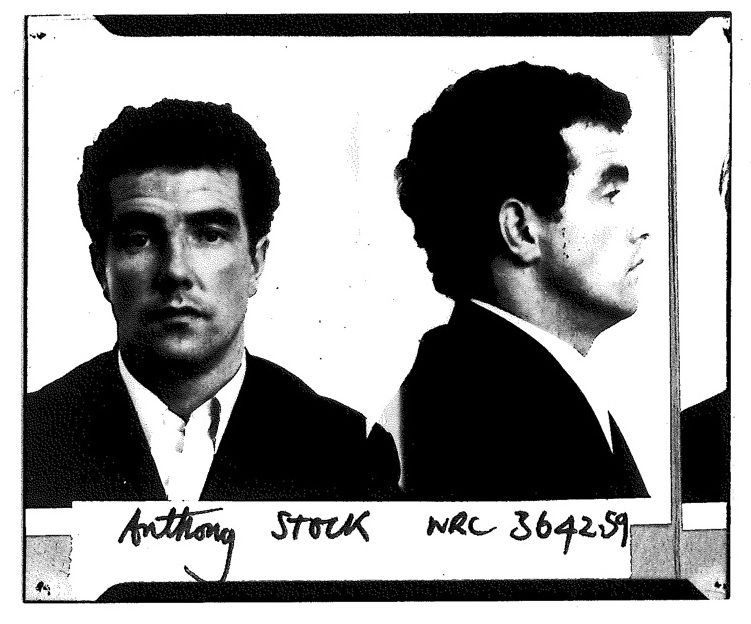 Tony Stock: a 43 year fight to clear his name
Tony Stock: a 43 year fight to clear his name
‘Not just a massive blot on the judicial landscape but a blot which has haemorrhaged to become the landscape itself,’ wrote leading human rights lawyer Michael Mansfield QC on the Tony Stock case.
The article was an edited version of the introduction to The First Miscarriage of Justice: The ‘Amazing and Unreported’ Case of Tony Stock by JusticeGap editor Jon Robins.
‘The case against Tony Stock was paper thin as is made clarion clear in this book. But whatever there was at the start was reduced to rubble over the course of four appeals.’
Michael Mansfield QC
We deserve better
‘It’s like a shadow inside of me. Twenty years don’t make a dent in the debt I owe my victims,’ the Guardian’s Erwin James told Tom Wright. James, Wright said, was ‘proof though that prison can have a massively positive effect on people who before being sent down were completely lost’. ‘In my case,’ he says, ‘I became who I should have been’.
‘We deserve a system that lets people out better than when they went in. It is very difficult for members of the public to understand that people who do harm to other people have needs and we need to fulfill their needs – not just to give them a better experience in prison, but because the majority of the people in there are going to come out one day.’
Erwin James
Respectful credulity
Should we wrap victims up in cotton wool? asked Barbara Hewson ahead of a Battle of Ideas debate, Victims’ Law: Therapeutic Justice or Moral Crusade?
‘The present trend of protecting victims at all costs involves a retreat from the forensic rigor of a criminal court. It has an air of special pleading about it. It implies that complainants must never be taken out of their comfort zone, no matter how grave the implications of their accusations for a defendant’s reputation and liberty. If, up until complainants step into the witness box, their account has been received in an atmosphere of respectful credulity, it is not difficult to see how disconcerting it can be for them to have their account seriously challenged.’
Barbara Hewson
Justice, moral panic and the Irish
‘Throughout the 1970s the majority of persons convicted of serious terrorist offences in England were innocent,’ wrote Paul May for a forthcoming collection of essays on the theme of Justice in a time of moral panic to be published in the New Year.
Wrongful convictions in this period ‘weren’t random aberrations caused by a few rogue police officers. They were the norm,’ May continued. ‘Efforts to transform Irish people into diabolic ‘others’ in the public mind were so successful that ostensibly normal behaviour was cited as proof of defendants’ deviance.’
‘In those days, it wouldn’t have been especially surprising if the government had added an offence of being in wilful possession of an Irish accent within designated areas of the Home Counties to the panoply of absurd, panic-stricken measures adopted in the wake of terrorist violence.’
Paul May
The naked rambler rides again
Stephen Gough was jailed for two-and-a half years after breaking the terms of an ASBO which banned him from appearing naked in public. A Winchester journalism university student Stephen Slominski happened to be in court as part of his course (there were no other court reporters there).
‘PC Rich Moody told Winchester Crown Court how he had been sent to the prison with a spare set of clothes to prevent Gough from breaching the terms of the ASBO again. Moody said he saw Gough emerge from jail naked except for socks and boots and carrying two large plastic bags… in full view of people waiting at a bus stop outside the Royal Hampshire County Hospital.’
Stephen Slominski
November
Telling the truth about the scum 
Chris Horrie explored the Sun’s relationship with Liverpool for a forthcoming Justice Gap collection on the theme of ‘Justice in a time of moral panic’ (here). It was the second most viewed article of the year (after the Gerry Conlon interview).
‘When future historians look back and try to find the exact date of the death of mass popular journalism in the UK, at least in print and in the sense of a majority of the population reading the same thing at the same time, there will be several potential milestones. But none of them will be as significant as the Sun’s coverage of Hillsborough – the day on which not just 92 victims died; but the day on which the bond of trust between popular newspapers and mass of the people perished along with them.’
Chris Horrie
The most dangerous woman in Britain
‘Britain dumps its citizens like toxic waste,’ Shami Chakrabarti told Bracken Stockley (here). The director of Liberty, was talking ahead of the launch of her new book considered new anti-terror legislation to strip suspects of their passports to stop British-born extremists from returning to the UK.
‘I have a problem with is a country like Britain trying to ditch its responsibilities both in terms of giving fair trials to suspects and in terms of protecting the world by ditching its own citizens by, if you like, dumping them like toxic waste into the international community when they, on the one hand, could be innocent in which case they’re being terribly punished without a fair trial; on the other hand if they are dangerous they should be convicted and behind bars here in the UK.’
Shami Chakrabarti
The director of Liberty was once called ‘the most dangerous woman in Britain’ by a Sun columnist Jon Gaunt. ‘It was a wonderful moment and I’ve dined out on it ever since,’ she told Stockley. ‘Mr Gaunt used to have a problem with me… and then he was very unfairly suddenly sacked from his radio programme one day and he found that the only way to try and get redress in relation to the way he’d been treated was under the Human Rights Act.’
Victor Nealon
Over the last 18 months we have reported on the travails of Victor Nealon, a man who spent 17 lost years in prison before having his rape conviction overturned as a result of a DNA test. Following the shocking decision by the government to further restrict eligibility for compensation for those who have been victims of miscarriages of justice (see January), Jon Robins wr0te that not only was Nealon refused permission to judicially review the decision of Chris Grayling to turn down his application for compensation, but the government was pursuing a man who was released with just £46 to his name for £2,500 of legal costs reported (here). The former postman, now 53 years old, spent his first night of freedom sleeping on the streets of Birmingham.
‘It is a public scandal that the government has refused to compensate Victor Nealon, but now we learn that Chris Grayling is trying to recover his costs defending a claim from someone who has suffered so much already because he has been treated outrageously by the state.’
Mark Newby
December
How to become a convicted serial killer (without killing anyone)
New research revealed doubts about the jailing of a nurse Ben Geen serving 30 years for murdering two patients and harming 15 others – see here. The article was published the same day as a Panorama was broadcast on the Colin Norris case (The Innocent Serial Killer) which rasied serious doubts about the safety of that conviction.
Richard Gill of the University of Leiden, in the Netherlands wrote about nurses accused of killing (How to become a convicted serial killer (without killing anyone).
‘Usually, murder cases start with an evidently murdered person. And the police are called in to find out who did it. Now it is the other way round. The police are completely dependent on the story told by the medics. As we know, “medical collegiality” means that that story will be very consistent. No one will break ranks and tell a different story.’
Richard Gill
I believe in angels
What turned an Eton-educated aristocrat into a notorious eco-activist? Hector Christie spoke to Christabel Mccooey. Christie, known for heckling Tony Blair spoke about breaking into Rothamsted Research Centre, Hertfordshire in May 2012 to disrupt the first ever trial of GM wheat in the UK. The site was surrounded by security including guards, CCTV and an enormous fence. Christie apparently cleared the 14ft fence.
‘I’m no gymnast, far from it, but I swear to God I felt something lift me from under my arms, I flew over that fence,’ he yold Mccooey. ‘That’s what I mean about the angels.’ Christie attributed much of his success in activism to ‘the angels’.
‘When you do activism for the good, extraordinary things open up. It’s like the parting of the Red Sea.’
Hector Christie




